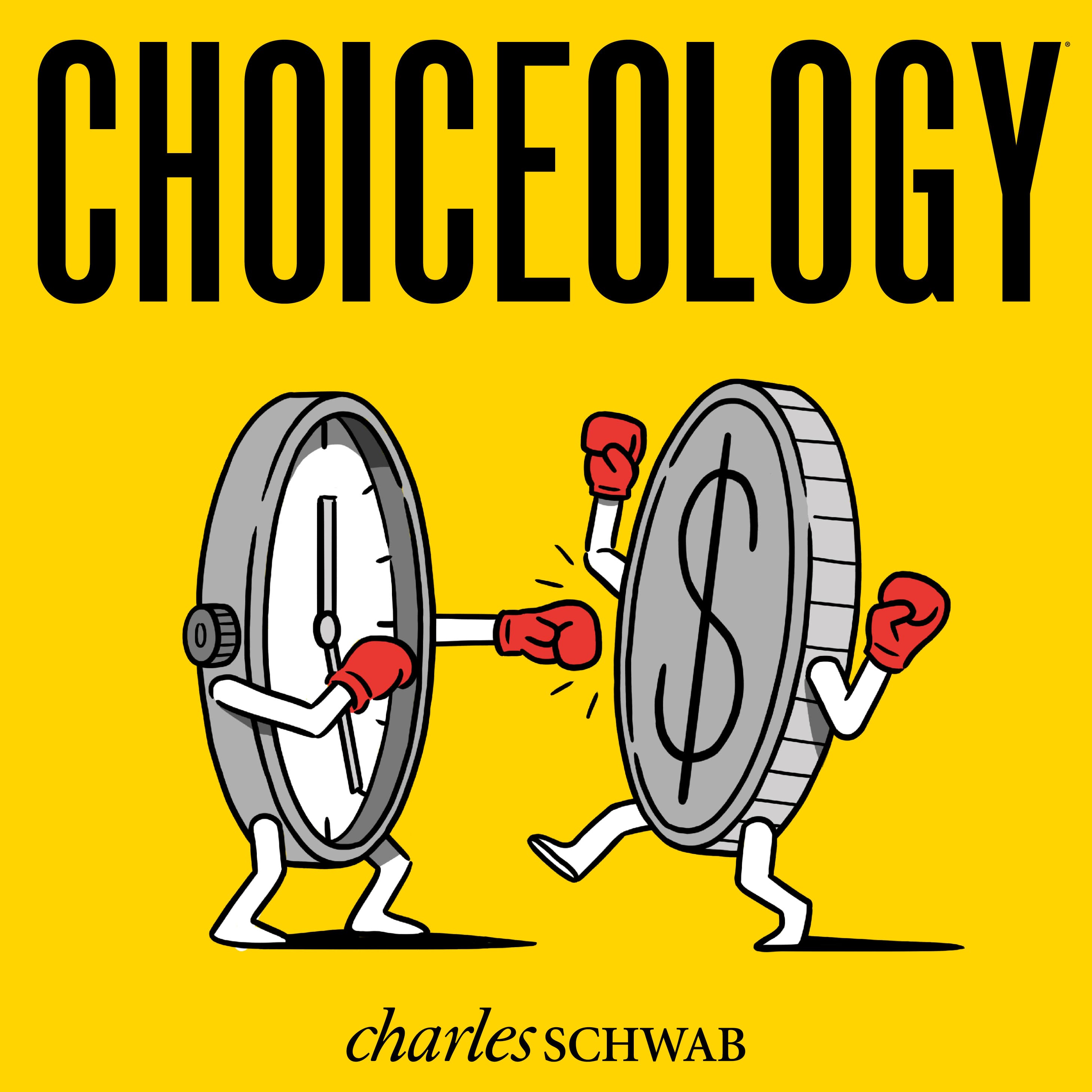How You Spend It: With Guests Joshua Fields Millburn & Cassie Mogilner Holmes
“Life, liberty, and the pursuit of happiness.” A quintessentially American phrase from the Declaration of Independence. That “pursuit of happiness” takes many forms, but it turns out that some approaches are more likely to be successful, according to science.
In this episode of Choiceology with Katy Milkman, we look at a way to frame how you spend your time and money that may help you lead a happier life.
Joshua Fields Millburn was hungry for success. Despite a difficult childhood, he was determined to make it big. He worked long hours, took little time off, and rapidly climbed the corporate ladder in his hometown of Dayton, Ohio. By his mid-twenties, he had worked his way to a director position at a telecommunications company and was leading a very prosperous lifestyle. But his workaholism had taken a toll. By 28, his marriage had failed, his mother had died, and Joshua was at a crossroads.
You’ll hear how he was forced to take stock of what was most important—and how he shifted his priorities in a way that changed his life for the better.
Joshua Fields Millburn in one half of the simple living duo the Minimalists.
Next, Katy speaks with Cassie Mogilner Holmes about her research on time and happiness and how prioritizing quality time over money and material wealth can have lasting positive effects. She's the author of the new book Happier Hour: How to Beat Distraction, Expand Your Time, and Focus on What Matters Most.
Cassie Mogilner Holmes is a professor of marketing and behavioral decision making at the UCLA Anderson School of Management.
Choiceology is an original podcast from Charles Schwab.
If you enjoy the show, please leave a rating or review on Apple Podcasts.
Learn more about behavioral finance.
Explore more topics
Important Disclosures
All expressions of opinion are subject to change without notice in reaction to shifting market conditions.
The comments, views, and opinions expressed in the presentation are those of the speakers and do not necessarily represent the views of Charles Schwab.
Data contained herein from third-party providers is obtained from what are considered reliable sources. However, its accuracy, completeness or reliability cannot be guaranteed.
The policy analysis provided by the Charles Schwab & Co., Inc., does not constitute and should not be interpreted as an endorsement of any political party.
Investing involves risk, including loss of principal.
The book How to Change: The Science of Getting from Where You Are to Where You Want to Be is not affiliated with, sponsored by, or endorsed by Charles Schwab & Co., Inc. (CS&Co.). Charles Schwab & Co., Inc. (CS&Co.) has not reviewed the book and makes no representations about its content.
Apple Podcasts and the Apple logo are trademarks of Apple Inc., registered in the U.S. and other countries.
Google Podcasts and the Google Podcasts logo are trademarks of Google LLC.
Spotify and the Spotify logo are registered trademarks of Spotify AB.



